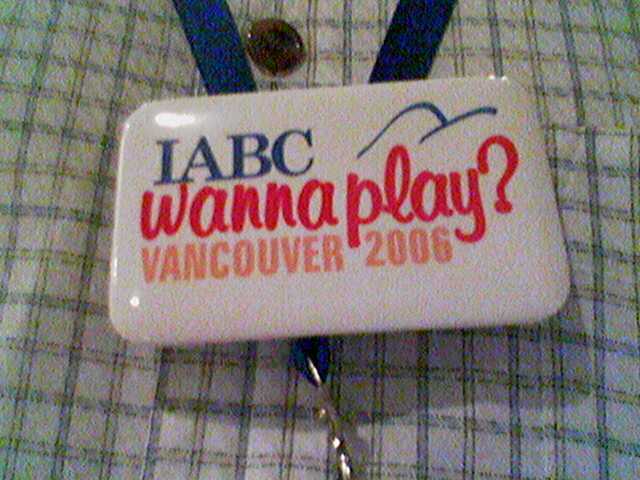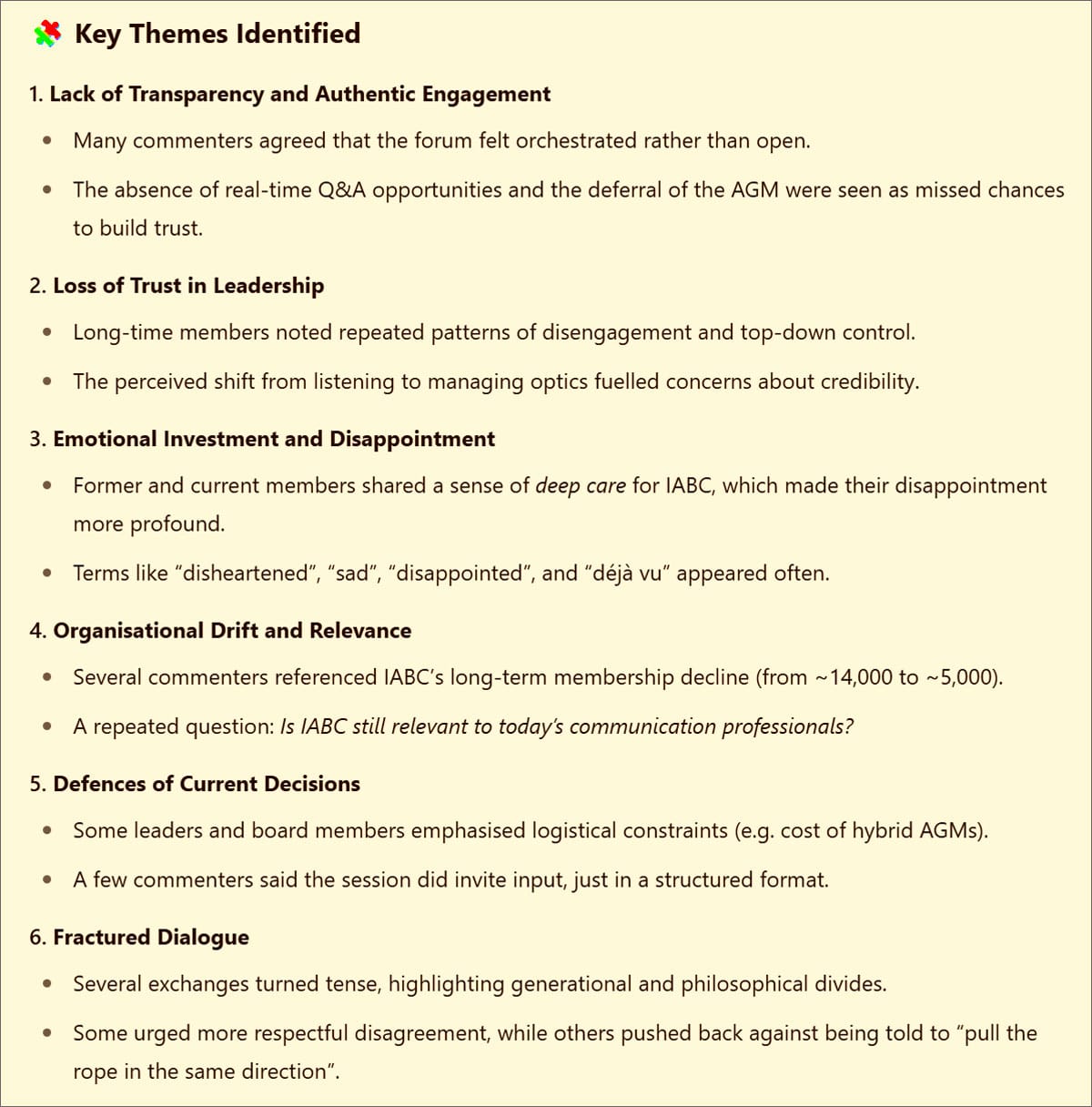More than a decade after I left, I find myself thinking about the International Association of Business Communicators (IABC) again.
The association's annual World Conference took place in Vancouver, Canada, over the past week, and I've been following some of the chat and opinions in posts and comments on LinkedIn.
What has sparked my thinking about IABC now is a powerful post from Priya Bates, a long-time member and volunteer leader. Her words struck a chord with many. They certainly did with me.
In her post, Priya expressed deep concern about some of her experiences at the World Conference in the Member Forum. Her words – about being silenced, about controlled rather than authentic dialogue – were all too familiar. I felt an uneasy sense of déjà vu. Her post has attracted more than 85 comments so far. If you're a LinkedIn member, you can view Priya's post and read the comments it has received.
Her words convey a clear message: if IABC doesn’t live the values it promotes – transparency, honesty, and trust – it risks losing its credibility and a community that cares.
I'm no longer an IABC Member, so why am I writing this?
Although I stepped away from IABC in 2012 after 23 years of membership (19 of which were as an accredited member) and held many volunteer leadership roles, the connection hasn’t simply disappeared.
If I were to say what events during my time with IABC have left indelible impressions, these three are standouts:
- In 1994, I passed my accreditation examination and became an ABC, an Accredited Business Communicator. This was IABC's professional development programme that ran for nearly 30 years until it ended in 2013, replaced by the outsourced CMP and SCMP certification programmes.
- In 2002, I was elected Region Director of the then-named Europe/Middle East Region with a clear mandate to implement wide-ranging changes in the direction of IABC in Europe.
- In 2009, I received the Chairman's Award from Barbara Gibson, 2008-2009 Chair, at the 2009 World Conference in San Francisco, "in recognition of dedicated service to IABC."
But it's not only the professional formality that leaves such great impressions. I'm reminded that Canadians like to socialise, and I experienced the full throttle of that when I attended the 2006 World Conference in Vancouver.

Love the sentiment!
However, in 2012, I was dismayed by a shift in leadership style and direction that ultimately led to me letting my membership lapse. In 2013, I reflected on that moment, expressing a sentiment that remains true today: "You don’t just dismiss a 23-year association... you still care enough to speak up."
That’s what I’m doing now.
The Conversation Today
Priya’s post triggered a wave of response from current and former IABC members, leaders and practitioners. The sentiment was overwhelmingly consistent. Words like “disheartened”, “controlled”, and “disconnected” surfaced frequently.
According to an analysis of anonymised comments (names removed) I asked ChatGPT Plus to carry out, there is concern that IABC is no longer listening. That opportunities for real engagement are being replaced with stage-managed sessions. That tough questions are avoided, not embraced.

One shocking metric stood out: membership today is said to be around 5,000, although I haven’t verified this through any official source. I see no mention of membership numbers in any public area of the IABC website. When I stepped away in 2012, it was close to 13,000. The IABC Wikipedia page still says 16,000, citing as source a report by Jack O'Dwyer in January 2009. Today's reality seems to paint a different picture.
To borrow a good phrase, the truth is out there. I've checked each of the key themes stated in the ChatGPT analysis, and I'm quite confident they accurately reflect the comments on Priya's post and the sentiment expressed in those comments.
This is informal but informed opinion that IABC's leaders – staff and volunteers – should find helpful and useful.
History Repeating leads to a Dead End
I’ve seen IABC weather crises before. The 2000s were turbulent, starting in 2001, but it was honest, uncomfortable conversation that helped us emerge stronger. We didn't always agree, but we spoke openly. We were committed to rebuilding together.
Today, surely the same opportunity exists. But it won’t last forever. If the leadership avoids rather than invites challenge, if the default mode is control over conversation, IABC risks losing not just members, but its credibility and purpose.
That's not much of a future.
I prefer to see another future because the noise is still there, and that means people still care. It’s the silence that worries me.
I may no longer wear the badge, but I still believe in what IABC could be. That’s why I’m paying attention, listening – and speaking up.
Related Reading:
- How high is the reboot bar for IABC? (8 June 2014)
- Goodbye IABC and good luck (30 June 2013)
- It’s a matter of respect, IABC (3 February 2013)
- With the IABC Chairman's Award 2009 (11 June 2009)















